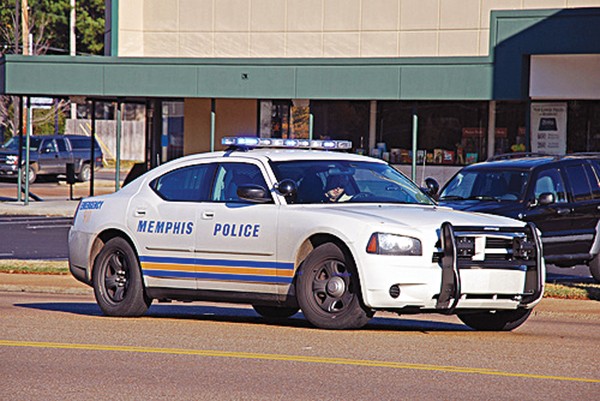In 2008, a surveillance video of a transgender Shelby County Jail inmate being beaten by police officers in the booking area of the jail sent shockwaves through the LGBT community.
Memphis Police officer Bridges McRae wrapped handcuffs around his fist and punched inmate Duanna Johnson in the head. He also used a chemical spray on Johnson, who later told the media that McRae called her “he/she” and “faggot.” McRae was later sentenced to two years in prison, but for some in the LGBT community, the distrust of police lingered.
“When you have situations like watching an officer beat a person in the jail, that carries a lot of weight. It’s hard to overcome that. It damages trust,” said Will Batts, director of the Memphis Gay & Lesbian Community Center (MGLCC).
Now two police liaisons to the LGBT community — Davin Clemons from the Memphis Police Department (MPD) and Barbara Tolbert from the Shelby County Sheriff’s Office (SCSO) — are hoping to restore that trust and ensure that their fellow officers are sensitive to LGBT issues.

It’s been more than a decade since the LGBT community has had a law enforcement liaison, and Batts said one is sorely needed.
“We needed somebody in the departments that we could refer people to, that they would feel safe being honest with,” Batts said.
An area of particular concern, Batts said, is the issue of same-sex domestic violence victims feeling comfortable opening up about their sexual orientation to police. He said police relations with the transgender community could be improved as well.
“Tennessee is the only state with a law against changing your gender marker on your birth certificate, and that puts you in conflict [with police] if your ID doesn’t match your appearance,” Batts said. “And it’s hard for transgender women of color to find adequate employment and housing, and they sometimes find themselves doing survival things that put them in conflict with the police department.”
But now, with the liaisons in place, if someone from the LGBT community has a negative interaction with police, they can turn to Clemons and Tolbert for help.
“If they feel violated or feel like the police are unsympathetic because of their sexual orientation, they can contact me,” said Clemons, who works with the MPD’s TACT Unit. “I will go through my chain of command and submit a memo and let my commanders know what has occurred.”
Clemons, an ordained elder at the Cathedral of Praise Church of Memphis, Inc., was already active in the equality movement before he was chosen for the liaison role. He’s a member of Clergy Defending Rights for All, which worked with the Tennessee Equality Project to push the non-discrimination ordinance for city workers that passed two years ago. He said he’ll help to educate his fellow officers on cultural sensitivity.
“I’m not trying to force sexual orientation on anyone. I’m just trying to make sure we uphold the oath that we took to be respectful of people’s cultures and their rights,” Clemons said. “I know I’ll get some backlash from some officers, but I think overall, most officers understand that Memphis is a melting pot, and we work with people who are same-gender-loving, white, black, Muslim, Asian, Hispanic. We have to respect the citizens we render services to.”
Tolbert, a detective in the SCSO Special Victims Unit, said part of their role as liaisons is simply to be a sympathetic ear.
“People just want to be heard. They want someone to listen to their concerns without any repercussions. I’m that person. They can discuss any matters with me and know they will not be judged,” Tolbert said.